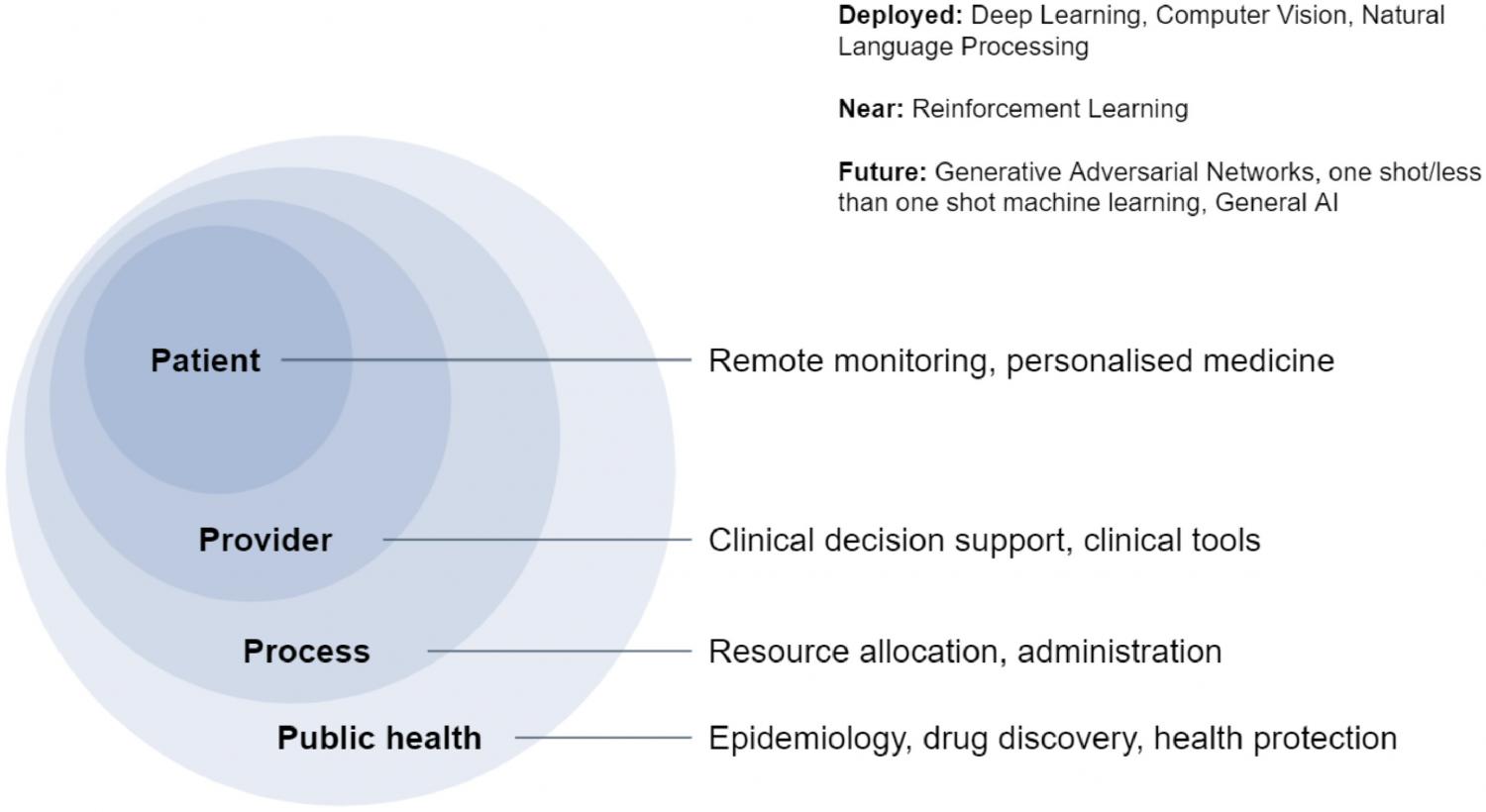
Healthcare provision has a significant climate impact and, conversely, the climate is a determinant of population health. Research is underway to quantify the emissions from healthcare systems, which helps with reducing and offsetting them. Artificial intelligence (AI) is a rapidly developing field contributing to the English National Health Service (NHS) goals of more efficient care and reduced climate impact. There are concerns about the detrimental carbon emissions from training and deploying AI models. Conversely, AI could potentially reduce emissions through process optimisation and changing models of care. In this narrative scoping review using the NHS as a case study we consider: AI in healthcare, methodologies for quantifying AI associated emissions, and opportunities for using AI to support NHS emission reduction efforts. We present the metrics and approaches commonly used to quantify climate impact in the field of AI and interpret them alongside healthcare AI. While the NHS, and other health systems, are investing in the potential of AI technologies to improve health services, more should be done to quantify the climate impact of AI tools. Standardised measures are lacking, thereby limiting the ability to reduce and offset the climate impact of AI. We provide recommendations for policymakers, climate researchers, and AI developers to consider as part of achieving a NetZero NHS by 2040.
